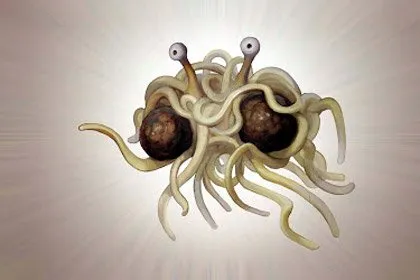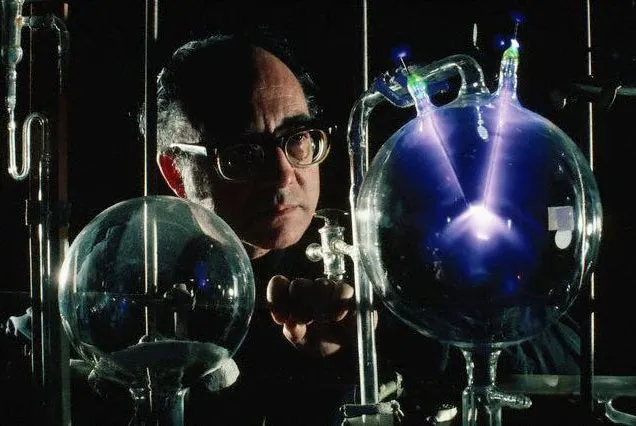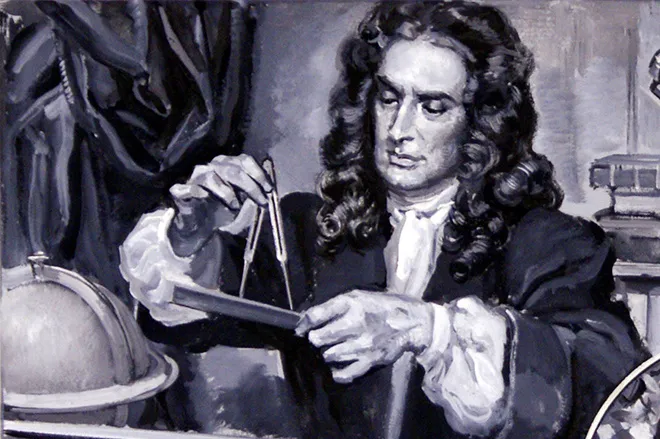Many people have heard of the Flying Spaghetti Monster - a religion that even has its own commandments. But not everyone knows why this monster is a religious theory, not a scientific one.

Thanks for the picture lenta.ru
Karl Popper - a philosopher and sociologist, who lived in the XX century - can help to understand it. He formulated the concept of critical rationalism: knowledge should be as objective as possible and not depend on the point of view of individual groups of people.
To test objectivity, Popper proposed using the criterion of falsifiability: the theory is scientific only when it can be falsifiable. It means that you need to come up with an experiment (not necessarily implement it!), at which it becomes clear that the theory is incorrect.

Image source: http://itc.ua/blogs/eksperiment-millera-yuri-povtorili-v-kompyuternoy-simulyatsii-i-poluchili-neozhidannyie-rezultatyi/
Is the theory of evolutionism scientific? Rather yes, than not, because we can consider it as falsified: if the remains of mammals (which appeared much later) are found in the sedimentary rocks of the cryptozoic period (very long ago - coincided with the birth of life), then it will show if not the complete collapse of the evolutionists, problems in reasoning.
Such an experiment was described by the biologist Haldane, while Darwin himself wrote more simply:
If it could be demonstrated that any complex organ existed, which could not possibly have been formed by numerous, successive, slight modifications, my theory would absolutely break down.
And the theory of creationism is unscientific for the same reason: there is no such experiment that would show its inconsistency, because any inconsistencies are explained by divine powers
It is important to understand that the Popper criterion does not say anything about the feasibility of the experiment, nor about the truth of the theory. Тhоsе, if the theory we recognized scientific, it is not a fact that this theory is true.
Testing the hypothesis by our experiment may not be feasible in practice - that's why it is so important to come up with the experiment itself.
Some theories remain in science even after their points of view have been falsified. For example, classical mechanics is not suitable for speeds close to speed of light - and it had to be changed, indicating the scope of applicability: it would not be easy to abandon Newton's laws in everyday life.

Isaac Newton does not yet know about elementary particles, the source of the photo is here
Let's return to our muttons Flying Spaghetti Monster and consider it from two positions.
"I do not believe in the Flying Spaghetti Monster." What should you do to convince me? That's right, find and show me this monster - and then I'll change my point of view. So, to disbelieve in a monster is scientifically.
"I believe in the Flying Spaghetti Monster." What should you do to convince me? Nothing, because the monster hides and nobody can not see it in principle. Therefore, Pastafarianism is not a science, but a religion.
In conclusion I must say, that the criterion of falsifiability can not be the only way to choose between contradictory theories. First, they can all be falsified.
Secondly, it is necessary to consider additional factors: whether the new theory fits into modern ideas about the world and does not contradict the already recognized theories, whether it is applicable in practice and whether it does not contradict itself.
Usually, real scientists know about such things and the scientific community helps them.
And Popper's criterion makes it very easy to distinguish a true scientist from a charlatan: the latter often call their theory non-falsifiable.